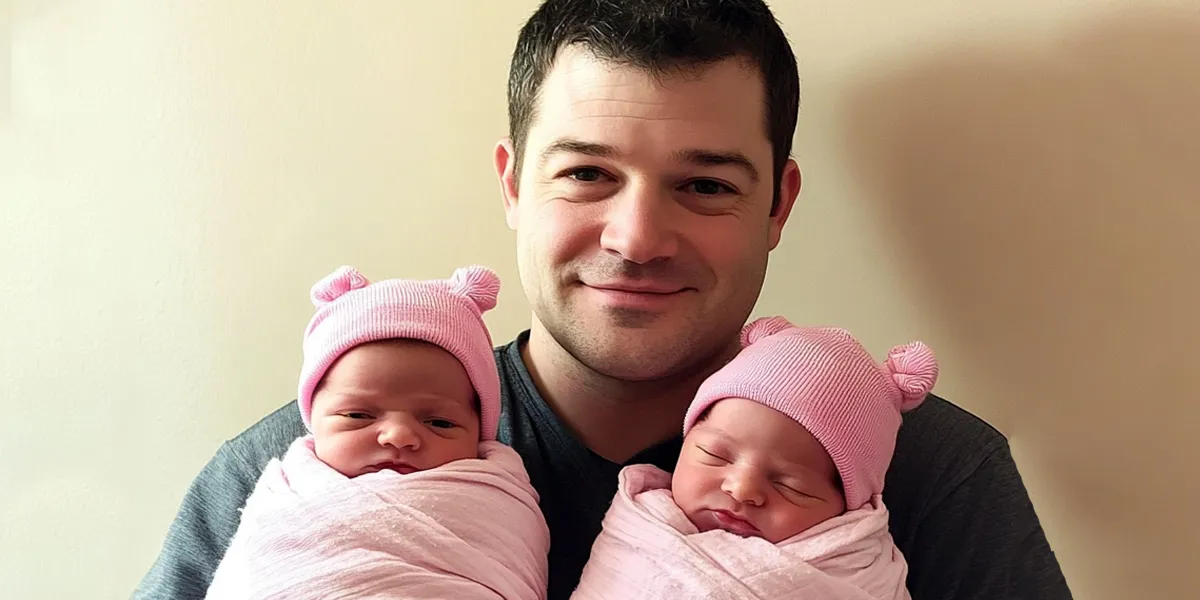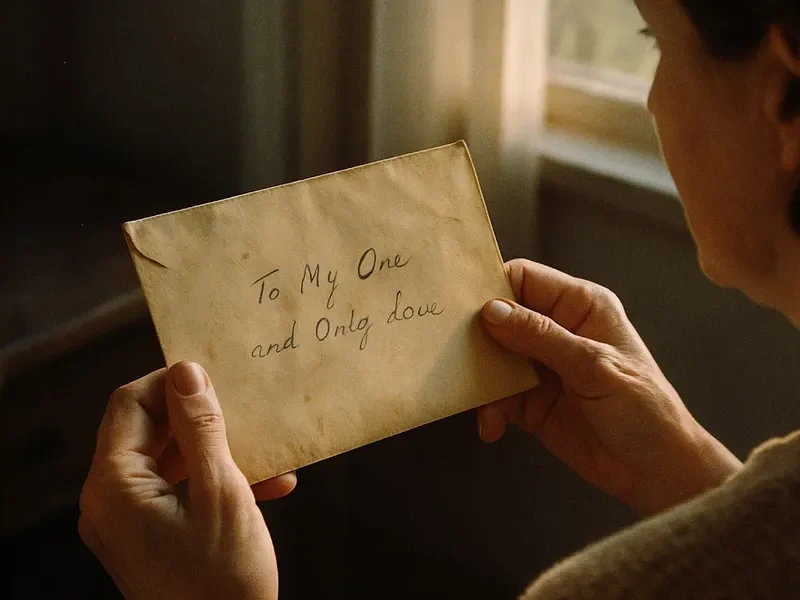I was over the moon driving to the hospital, eager to bring home my wife, Emily, and our newborn twins. Balloons floated beside me, and I imagined Emily’s joy at the nursery I’d set up. After a pregnancy of aches and my mom’s endless critiques, she deserved this moment. But when I reached her room, my heart stopped. The twins were there, sleeping, but Emily was missing, with only a note: “Goodbye. Care for them. Your mother knows why.”
The words blurred as I reread them, panic rising. What had happened? Emily seemed fine, didn’t she? A nurse entered with papers, and I demanded, “Where’s Emily?” She looked uneasy. “She left this morning. Said you were aware.” I showed her the note, shaking. “She was calm, just quiet,” the nurse said. Dazed, I took my daughters home, the note heavy in my hand. How could Emily, my love, vanish, leaving only this cryptic message?

My mom, Carol, stood on the porch, holding a tray of mac and cheese, smiling. “My grandgirls!” she said, reaching out. I stepped back. “Not now, Mom.” Her smile dropped. “What’s wrong, Jack?” I handed her the note. “What did you do?” Her face paled as she read, her voice shaky. “I don’t know what this means,” she said. “Maybe she’s overwhelmed.” I shouted, “You never liked her! Tell me the truth!” She cried, “I only tried to help,” but I walked away, her words ringing hollow.
That night, with Grace and Emma asleep, I sat with a tea, staring at the note. Mom’s protests clashed with Emily’s accusation. I recalled her sharp comments about Emily, dismissed as teasing. Had they wounded her? I searched Emily’s closet, finding a letter in Mom’s handwriting inside a shoebox. “Emily, you’re not worthy of Jack. These babies chain him. Leave before you destroy them.” My heart sank. Mom’s secret cruelty had driven Emily away, and I’d missed it.
I stormed to Mom’s room at midnight, waving the letter. “How dare you?” Her eyes widened. “I thought I was protecting you,” she said faintly. “She wasn’t enough.” I roared, “She’s their mother! You broke us. Leave.” Her tears didn’t move me, and she drove off. Raising the twins was tough—crying, feeding, no sleep. I called Emily’s friends, seeking answers. Her friend Lisa hesitated. “She felt suffocated,” she said. “Your mom said the twins were better off without her.”
The pain deepened. Why hadn’t Emily trusted me? Lisa said she feared Mom’s influence. Months later, a text came from an unknown number—a hospital photo of Emily with the twins, captioned: “I’m not the mom they deserve. I’m sorry.” I tried calling, but it failed. The image kept my hope alive. On the twins’ first birthday, a knock startled me. Emily stood there, eyes wet, holding gifts. I hugged her, overwhelmed. She later shared how postpartum depression and Mom’s words crushed her, but therapy helped her rebuild.
“I couldn’t stay,” she said, watching the twins sleep. “But I want to try.” I squeezed her hand. “Together.” Healing was slow, but the twins’ smiles and our love fueled us. Emily’s return taught me that even the deepest wounds can heal with patience and forgiveness, giving our family a second chance.


